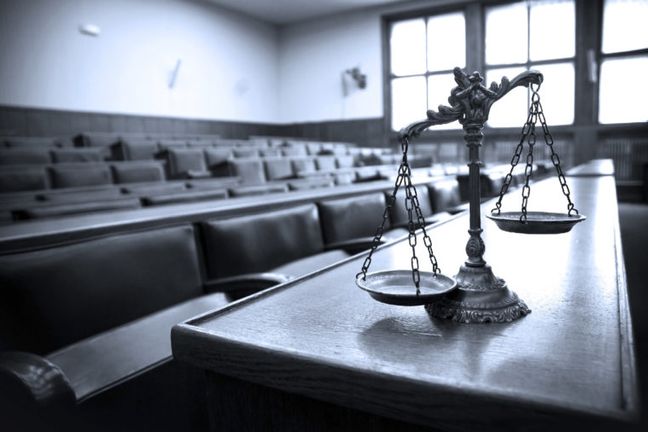Remittitur of Excessive Future Damages
WAL-MART Stores, Inc. v. Derrick Thornton (43 Fla. L Weekly D521a)
A Broward County Plaintiff sued for damages resulting from a slip-and-fall accident. At trial, a verdict in favor of the Plaintiff was rendered and damages were awarded for injuries sustained, including $150,000 for future medical costs. Following the trial, Wal-Mart filed a Motion for Remittitur, arguing the damages awarded was excessive in light of the facts presented, which the trial court denied.
Florida Statute Section 768.74 codifies Florida’s rule on remittitur and additur, and states:
(1) In any action to which this part applies wherein the trier of fact determines that liability exists on the party of the defendant and a verdict is rendered which awards money damages to the plaintiff, it shall be the responsibility of the court, upon proper motion, to review the amount of such award to determine if such amount is excessive or inadequate in light of the facts and circumstances which were presented to the trier of fact.
(2) If the court finds that the amount awarded is excessive or inadequate, it shall order a remittitur or additur, as the case may be
(5) In determining whether an award is excessive or inadequate in light of the facts and circumstances presented to the trier of fact and in determining the amount, if any, that such award exceeds a reasonable range of damages or is inadequate, the court shall consider the following criteria:
(a) Whether the amount awarded is indicative of prejudice, passion, or corruption on the part of the trier of fact;
(b) Whether it appears that the trier of fact ignored the evidence in reaching a verdict or misconceived the merits of the case relating to the amounts of damages recoverable;
(c) Whether the trier of fact took improper elements of damages into account or arrived at the amount of damages by speculation or conjecture;
(d) Whether the amount awarded bears a reasonable relation to the amount of damages proved and the injury suffered; and
(e) Whether the amount awarded is supported by the evidence and is such that it could be adduced in a logical manner by a reasonable person.
Testimony elicited at the trial by Plaintiff’s doctor presented information to the jury that future medical costs for “a potential future knee replacement surgery” would not exceed $75,000. In its verdict, the jury awarded Plaintiff $150,000 for future medical costs. In its motion, Wal-Mart argued that the jury’s award of twice the amount of potential future medical damages was against the manifest weight of the evidence.
On appeal, the Fourth District Court of Appeal agreed with Wal-Mart as it pertained to arguments related to the jury’s award for future medical costs. After a careful review of the testimony and evidence, the Court found the amount of damages awarded for future medical expenses “bears no reasonable relationship to the damages proved,” reversed the trial court’s judgement and remanded for reconsideration of the Motion for Remittitur in accordance with section 768.74, Florida Statutes.
Award of Attorney’s Fees Following Untimely Proposal for Settlement
Scott D. Meyrowitz v. Andrew Schwartz (43 Fla. L. Weekly D479a)
A Palm Beach County Defendant appealed a final judgment awarding attorney’s fees pursuant to Florida’s offer of judgment rule, arguing that the proposal was untimely under Florida Rule of Civil Procedure 1.442, subdivision (b). Agreeing with the Defendant’s argument, the Fourth District Court of Appeal ordered the reversal of the attorney’s fees award.
Plaintiff Andrew M. Schwartz, P.A. (“Schwartz) filed an action against Defendant Scott B Meyrowitz (“Meyrowitz”) for unpaid legal bills. On December 1, 2016, a trial court entered an order setting the case for a non-jury trial on the trial calendar beginning March 20, 2017, and ending May 12, 2017. Thereafter, on March 1, upon referral for a special set trial, a new order was filed setting the case for non-jury trial to take place on May 2, 2017. Two days later, on March 3, 2017, Schwartz served a proposal for settlement on Meyrowitz, offering to settle the case for $38,500. Meyrowitz did not accept the proposal.
Litigants in Florida will frequently serve the opposing party with proposals for settlement and offers of judgment as a means to resolve cases without the need for trial or future litigation. Serving a proposal for settlement or offer of judgment can also be part of a litigation strategy to preserve future arguments seeking the recovery of attorney’s fees and costs, pursuant to section 768.78, Florida Statutes. Proposals for settlement and offers of judgment must be served and filed in compliance with Florida Rule of Civil Procedure 1.442.
After trial, a judgment in favor of the Schwartz for $49,121.07 was awarded. Based on the judgment and Meyrowitz’s failure to accept the proposal for settlement, Schwartz filed a motion for attorney’s fees pursuant to section 768.78, Florida Statutes. Meyrowitz objected on the grounds that the proposal for settlement was not timely served pursuant to rule 1.442(b). The trial court found that the service of the motion complied with rule 1.442 and entered an order awarding the firm $24,825 in attorney’s fees.
Florida Rule of Civil Procedure 1.442, subdivision (b) states:
“[N]o proposal [for settlement] shall be served later than 45 days before the date set for trial or the first day of the docket on which the case is set for trial, whichever is earlier.”
In this case, 45 days before the May 2, 2017, trial date was March 18, 2017. However, 45 days before the first day of the March 20, 2017, docket was February 3, 2017. Therefore 45 days before the first day of the docket was earlier in time than 45 days before the date set for trial.
In his appeal Meyrowitz argued that the proposal for settlement was not timely because it was served later than 45 days before the first day of the docket on which the case was set for trial. Schwartz argued that affirmance was warranted because the proposal was served two days after the order removing the case from the original trial calendar and reassigning for a special set trial.
In commencing its analysis, the Fourth District Court of Appeal stated Rule 1.442 must be strictly construed because it is punitive in nature in that it imposes sanctions upon the losing party and is in derogation of the common law. Schussel v. Ladd Hairdressers, Inc., 736 So. 2d 776, 778 (Fla. 4th DCA 1999). The Court also acknowledged the rule must be construed in accordance with the principles of statutory construction. R.T.G. Furniture Corp. v. Coates, 93 So. 3d 1151, 1153 (Fla. 4th DCA 2012)(When the language at issue is clear and unambiguous and conveys a clear and definite meaning, the court must give unambiguous language its plain and ordinary meaning, unless it leads to a result that is either unreasonable or clearly contrary to legislative intent).
The court considered an exception noted in Liguori v. Daly, 756 So. 2d 268 (Fla. 4th DCA 2000) and Progressive Casualty Insurance Co. v. Radiology & Imaging Center of South Florida, 761 So. 399 (Fla. 3d DCA 2000). In Liguori the case was set for trial during a six week trial setting. The case was not called for trial during the first five weeks of the initial trial setting docket and the parties had been excused from the final week by court order. During that final week, a proposal for settlement was served. The trial was subsequently resent on other dockets and the case went to trial four months later. The Liguori opinion reasoned that although an offer of judgment is untimely and unenforceable when it is made less than 45 days before the first day of the docket on which the case is initially set, it found the proposal in that case timely because it was “directed to the next, as yet, unscheduled docket.
The court in Progressive Casualty, cited to Liguori, and stated that if an offer of judgment is made at a point in time in which it appears, from the facts of the individual case, that the offer is not directed to the current trial period, but rather, is intended for the next, as yet, unscheduled trial period, then in that situation, and in that situation only, the offer of judgment is considered timely. Id. At 400. The Progressive Casualty court concluded that this is a very limited exception which must be strictly applied to the narrow circumstances where there is some evidence in the record that both parties know that the case will not be tried during the current trial period and that the offer is made in anticipation of the next, as yet, unscheduled trial period. Id.
Ultimately, the court concluded that February 3, 2017, is the earlier and thus the operative date pursuant to rule 1.442, and the March 3, 2017, proposal was untimely because it was served after this date. The court reasoned that the case was scheduled for trial during an eight-week calendar, and the trial occurred during that calendar. Although the proposal was served more than 45 days before the date set for trial, it was not served more than 45 days before the first date of the docket, as required under rule 1.442, Finding that the facts in this case did not fit within the narrow exception carved out in Liguori and Progressive Casualty, the court reversed the trial court’s decision.
Two-Part Test for Production of Trade Secrets
Niagra Industries, Inc., et. Al. v. Giaquinto Electric, LLC (43 Fla. L Weekly D477a)
A trial court ordered a non-party to produce trade secret material over the non-parties objection. The issue before the Fourth District Court of Appeal was whether the production of material containing trade secretes was “reasonably necessary.” It was concluded that the trial court departed from the essential requirements of law when it ordered the non-party to disclose their trade secrets, because the party requesting the disclosure failed to present any evidence to establish that the production of privileged information was reasonably necessary.
Background
Scott Wesley Frank, Sr. purchased a tankless water heater from Rheem Sales Company, designed by Niagara Industries Inc. At some point thereafter, the water heater experienced problems, necessitating repairs. During the repairs, the water heater exploded causing physical injury to Mr. Frank. Mr. Frank then filed a lawsuit against Niagara Industries and Rheem. During the litigation of the case, the court required the defendants to disclose what they described as their “confidential and highly confidential documents.” These documents included claimed trade secrets relating to the manufacturing and testing of the subject tankless water heater. The court required disclosure pursuant to a protective order that permitted only certain people to view the documents. In accordance with the protective order, the documents were disclosed to only four people, one of which was an expert for Mr. Frank. Mr. Frank’s expert testified at trial that the product failed in an unreasonably safe manner. Prior to a jury returning a verdict at the trial on the issue, the parties filed a stipulation of dismissal and the previously disclosed documents were returned to the defendants.
Mr. Frank then filed a new lawsuit against further defendants. One of the defendants in the second lawsuit served a notice of production from non-parties and a subpoena duces tecum without deposition, indicating an intent to seek various documents from the Niagara Industries and Rheem. Included in the documents sought were those previously identified confidential documents and trade secrets. Niagara Industries and Rheem objected to the notice of production and the subpoena.
The court then held an evidentiary hearing on the objections, during which time the owner of Niagara Industries was the only witness. The owner testified that the release of trade secrets “would be devastating” to the company. He further provided testimony regarding Niagara’s belief as to why the product exploded. After the hearing the court ruled the requested documents were a trade secret, but ordered the documents to be produced, reasoning that there was a reasonable necessity for the production of some of the items because there is testimony that the product failed, and there was no ability to test the specific heater in question. The trial court also expressed concern that, because the Plaintiff had filed two separate lawsuits, the parties in the pending litigation would have different evidence than those in the first litigation.
Analysis
On review, the Fourth District Court of Appeal stated Florida Statute§ 90.506, subject to certain limitations, indicates trade secrets are privileged from disclosure. The statute court also recognized an improper order piercing this privilege and requiring disclosure of trade secrets may cause irreparable harm to the disclosing party and, in some cases, a person not even aware of the proceeding. Because the protected information will be known once disclosed, the harm sustained cannot be remedied on appeal.
The court began its analysis by stating what must occur at the trial court level when a party asserts material is protected by the trade-secrets privilege: the court must conduct a two-step inquiry. First, the court must determine if the documents at issue are, in fact, trade secrets. Second, if the court concludes the documents are trade secrets, the burden shifts to the requesting party to show that the disclosure is reasonably necessary. See, e.g., Am. Exp. Travel Related Services, Inc. v. Cruz, 761 So. 2d 1206, 1208 (Fla. 4th DCA 2000); Sea Coast Fire, Inc. v. Triangle Fire, Inc., 170 So. 3d 804, 809 (Fla. 3d DCA 2014).
In this case the trial court found the documents at issue were trade secrets. Therefore, the court stated, the burden shifted to the parties seeking the documents to establish that disclosure was reasonably necessary. However, at the hearing, only Niagara presented testimony or evidence. Niagara’s witness testified as to the devastating impact on Niagara’s business if the documents were to be released and provided Niagara’s theory on the cause of the explosion.
The Court of Appeal concluded the trial court departed from the two-part test when it compelled the production of the privileged documents. The court found the trial court’s reliance on the destruction of the tankless water heater at issue, without more, to be insufficient. The parties requesting the documents did not present any evidence to support the conclusion that the information lost, due to the destruction of the tankless water heater, could only be remedied through access to trade secrets. The court noted the absence of evidence showing the tankless water heater was necessary. Nor was evidence presented showing the purportedly necessary information could not be obtained by other means. The court recognized if the mere destruction of a product is sufficient to breach the privilege, the trade-secret privilege could be breached any time a lawsuit involves a product or item that was destroyed.
The court also addressed the trial court’s concern about the Plaintiff having filed two lawsuits and the parties in the pending litigation having different evidence than those in the first litigation. Here, the court reasoning the mere existence of the first lawsuit, without more, is insufficient to invade the trade-secret privilege. The Court further reasoned defendants in the first lawsuit, but non-parties in the second litigation, cannot be blamed for a Plaintiff’s litigation strategy and choice of defendants.
Conclusion
A party cannot obtain documents containing privileged trade secrets without establishing a reasonable necessity for breaching the privilege. Here, the trial court departed from the essential requirements of the law when it found the requesting party had established a reasonable necessity to breach the privilege, even though the requesting party had failed to present any evidence. The Fourth District Court of Appeal did not hold a requesting party must always present evidence, but recognized that by failing to do so, a requesting party is at risk of being unable to overcome the testimony of the movant.
Once the burden shifts to the requesting party, the court must weigh the need for producing the document against protecting its confidentiality. Here, the Niagara witness testified that disclosure would be devastating and also provided their theory on the cause of the explosion. The requesting party did not overcome this testimony or establish a specific need for the protected documents. Accordingly, the Fourth District Court of Appeal reversed the trial court’s order.

 Author: Haldon Greenburg
Author: Haldon Greenburg
 Cannabis Workers Allege Quota to Trim 4 Pounds a Day Violates the California Labor Code
Cannabis Workers Allege Quota to Trim 4 Pounds a Day Violates the California Labor Code
 The Ninth Circuit Reminds Us: Every Word Matters
The Ninth Circuit Reminds Us: Every Word Matters
 NO WAY, PRO SE! The Consequences of Abusing the Judicial System as a Pro Se Litigant in Colorado
NO WAY, PRO SE! The Consequences of Abusing the Judicial System as a Pro Se Litigant in Colorado
 Victim of Financial Mismanagement or Unlawful Retaliation? New Jersey City University Program Founder Claims School Retaliated After Reporting Alleged Sexual Harassment
Victim of Financial Mismanagement or Unlawful Retaliation? New Jersey City University Program Founder Claims School Retaliated After Reporting Alleged Sexual Harassment
 “Real Housewives” Gets a Reality Check
“Real Housewives” Gets a Reality Check
 Missing a Chapter: Insufficiency of Expert Deposition Testimony in Medical Malpractice Litigation
Missing a Chapter: Insufficiency of Expert Deposition Testimony in Medical Malpractice Litigation
 Crash Course: Why Summary Judgment Misses the Mark in Illinois Multi-Cause Limousine Crash Collision
Crash Course: Why Summary Judgment Misses the Mark in Illinois Multi-Cause Limousine Crash Collision
 Bitter Truths: Lead, Cadmium, and Defective Pleadings in California Chocolate Class Action
Bitter Truths: Lead, Cadmium, and Defective Pleadings in California Chocolate Class Action
 The Law of Unintended Consequences: Including Insurance Brokers in Litigation Strategy Communication May Waive the Attorney-Client Privilege
The Law of Unintended Consequences: Including Insurance Brokers in Litigation Strategy Communication May Waive the Attorney-Client Privilege
 Florida: Judicial Hellhole No More?
Florida: Judicial Hellhole No More?
 Florida Supreme Court Confirms Collateral Source Rule For Defendants
Florida Supreme Court Confirms Collateral Source Rule For Defendants
 Florida Case Law Update
Florida Case Law Update
 Florida Case Law Update
Florida Case Law Update
 Meet the New Law. Same as the Old Law. Florida Reverts Back to the Daubert Standard for Expert Evidence
Meet the New Law. Same as the Old Law. Florida Reverts Back to the Daubert Standard for Expert Evidence
 Florida Case Law Update
Florida Case Law Update
 Florida Case Law Update
Florida Case Law Update
 Recent Florida Fourth DCA Opinions Highlight Importance of Specific Provisions in Agreements to Arbitration
Recent Florida Fourth DCA Opinions Highlight Importance of Specific Provisions in Agreements to Arbitration